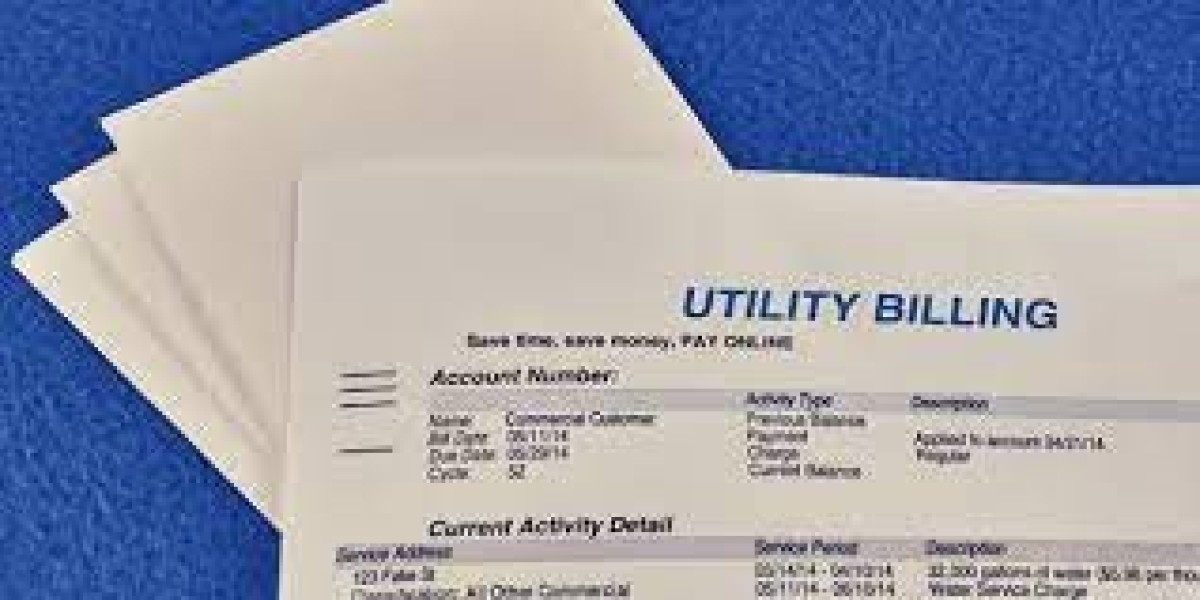Providing proof of address is a common requirement for various purposes, such as opening a bank account, applying for a loan, or verifying identity for online services. Typically, utility bills are accepted as valid proof of address. However, the idea of using a fake utility bill for proof of address has gained popularity. While this may seem like a quick fix, it carries significant risks and legal implications. In this article, we will look at the dangers of using fake utility bills and offer legal alternatives to verifying your address.
Understanding the Temptation
People may consider using a fake utility bill for several reasons:
- Lack of Proper Documentation: Some individuals may not have recent utility bills in their name, especially if they are staying with friends or family.
- Time Constraints: In urgent situations, obtaining an official document may seem too slow.
- Privacy Concerns: Some might want to protect their personal information by avoiding sharing their actual utility bills.
The Risks of Using a Fake Utility Bill
1. Legal Consequences Creating or using a fake utility bill is illegal and considered fraud. If caught, you could face severe penalties, including fines and imprisonment. Legal systems in most countries take document forgery very seriously, and the repercussions can have long-term impacts on your personal and professional life.
2. Financial Penalties Apart from potential legal penalties, using a fake utility bill can result in financial consequences. Banks or financial institutions might impose hefty fines if they discover the fraud, and you may also be held liable for any losses incurred due to the false information.
3. Damage to Reputation Being caught using a fake document can severely damage your reputation. Whether it’s in your personal life or professional sphere, being known as someone who resorts to fraudulent means can lead to a loss of trust and credibility.
4. Ethical Implications Using fake documents is ethically wrong. It undermines the integrity of systems designed to ensure security and trust. Engaging in such practices reflects poorly on one's character and can have far-reaching moral implications.
Legitimate Alternatives for Proof of Address
Instead of resorting to illegal means, consider these legitimate alternatives for proving your address:
1. Bank Statements Most financial institutions accept bank statements as proof of address. Ensure that your statement is recent (usually within the last three months) and includes your full name and address.
2. Government-Issued Documents Documents such as a driver’s license, voter registration card, or tax returns are widely accepted forms of proof of address. These are reliable and easy to obtain.
3. Lease or Rental Agreements If you are renting, a lease or rental agreement signed by both parties can serve as proof of address. This document is often accepted by various institutions.
4. Utility Bills If you do not have a utility bill in your name, consider setting up one. Contact your utility provider to see if they can issue a bill in your name, even if you are not the primary account holder.
5. Affidavit of Residency In some cases, a notarized affidavit of residency from a landlord or cohabitant can serve as proof of address. This document is especially useful for individuals living with family or friends without formal lease agreements.
6. Employer’s Letter A letter from your employer on company letterhead, confirming your address, can also be used as proof. Ensure the letter is signed and dated by an authorized representative.
7. Insurance Documents Homeowner’s or renter’s insurance policy documents that state your name and address are also acceptable in many instances.
8. Educational Records For students, an enrollment verification letter or official correspondence from the educational institution can serve as proof of address.








